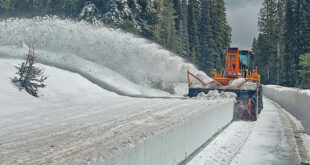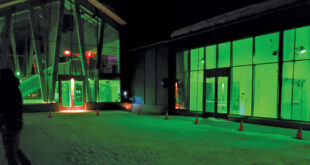Seeking to protect pristine wilderness areas
By Adam Broderick
Protected open space is a priority in Gunnison County, and has been a popular topic of discussion as the number of visitors to the area shot up dramatically this summer and crowding was felt at most trailheads, campgrounds and wilderness access points.
Diane DeGette, U.S. Representative of Colorado, understands the importance of having access to protected wilderness areas and the effect such access has on local economies, wildlife habitats and resident lifestyles.
On Wednesday, August 5, Congresswoman DeGette introduced the Colorado Wilderness Act of 2015. According to a press release from DeGette’s office in the U.S. House of Representatives, the act proposes to protect 32 separate areas consisting of more than 715,000 acres. It would preserve a wide range of wilderness quality public land including high mountain peaks and critical lower elevation red rock canyons.
In Gunnison County, two currently unprotected wild areas would be offered protection by this legislation. One of those areas is a 5,000-acre addition to the West Elk Wilderness, west of Gunnison near Blue Mesa Reservoir and including the Dillon Pinnacles, and the other is a 3,306-acre addition to the Powderhorn Wilderness Area.
The press release included a brief history of the act’s drafting: DeGette first proposed the legislation in 1999, originally developed by Colorado citizens who spent another 1.5 decades surveying potential public lands and meeting with the public and stakeholders to develop a statewide proposal. After incorporating all data and feedback, they asked Rep. DeGette to help them protect these last remaining critical areas. Both the West Elk Wilderness and Powderhorn Wilderness areas were part of the original proposal.
“As I’ve traveled the state over the years, meeting with stakeholders and listening to Coloradoans, I’ve heard people across the state emphasize the importance of wilderness and their reasons are as diverse as the individuals calling for their protection, ranging from the support it brings to local businesses and our economy to habitat protection and the Colorado lifestyle,” Rep. DeGette said in the press release.
Jen Clanahan, senior policy advisor at DeGette’s office, gave the Crested Butte News a number of reasons the congresswoman has chosen to protect these areas. “Wilderness designation contributes significantly to the local economy by attracting tourism, and can even increase local property values. Wilderness protects critical wildlife habitat and natural ecological processes. Wildlands that are intact can help clean our air and our water. Also, [the congresswoman’s] proposal is primarily lower-lying canyon areas, which are under-represented in our wilderness system. This bill would offer protection to a different type of habitat as well as a longer recreational season for outdoor enthusiasts as the lower elevation areas have a longer snow-free season,” Clanahan explained.
Gunnison County commissioner Phil Chamberland says DeGette has been proposing the bill every year since 1999, but he doubts she could get all the counties involved to agree to it without breaking the process into smaller stages. “Getting Pitkin, Delta, Gunnison and everyone to agree, it won’t happen. You can’t get a coalition like that to sit at the same table for any sort of time,” Chamberland said. “She’s basically just making a statement. She does every year. Which is fine, but I think if she wants it done she needs to do what people like Senators Bennett and Udall are doing. Get the groups who live there on the same page, then get Gunnison County to say, ‘What do you guys want?,’ but to get Gunnison and Mesa and Pitkin and Summit and Eagle and everybody to say ‘We agree,’ it’s just not going to happen.”
Since Republicans have the majority of the House right now, they determine which bills are debated and when. Clanahan said there isn’t a schedule set up so there isn’t a specific date the act could pass through congress. But the current two-year session of Congress goes until December 2016, so the act has until then to pass before it effectively dies.
 The Crested Butte News Serving the Gunnison Valley since 1999
The Crested Butte News Serving the Gunnison Valley since 1999



